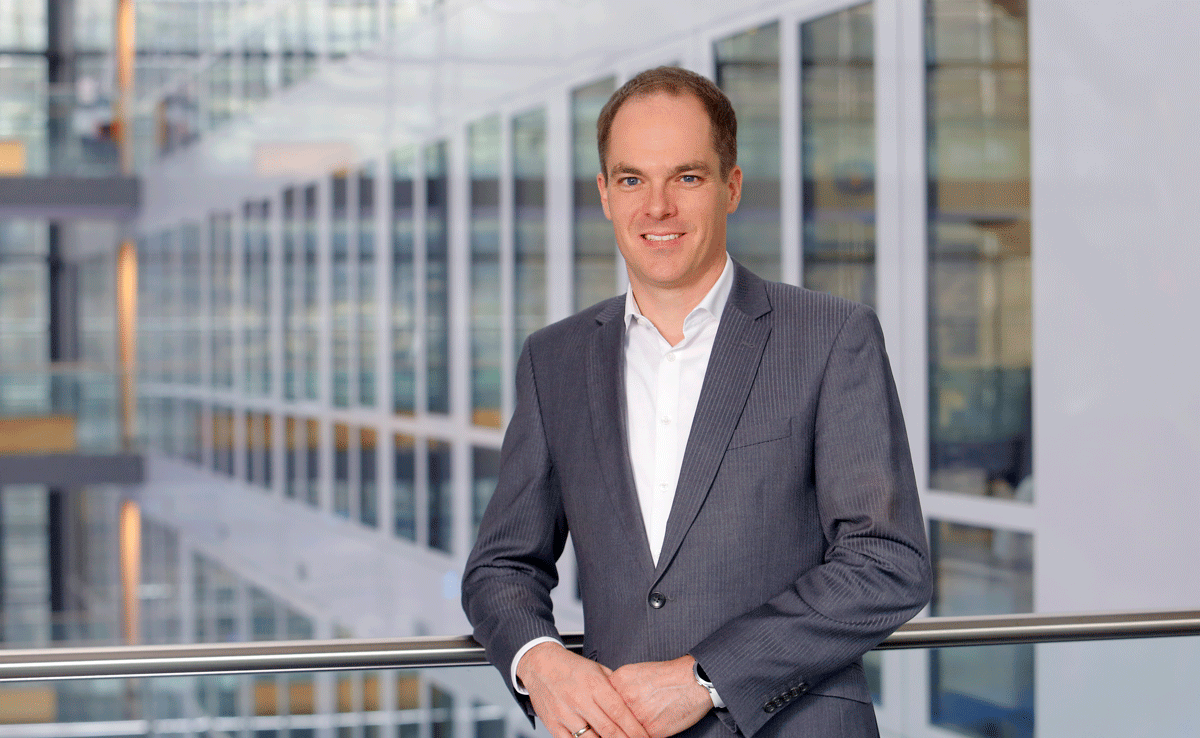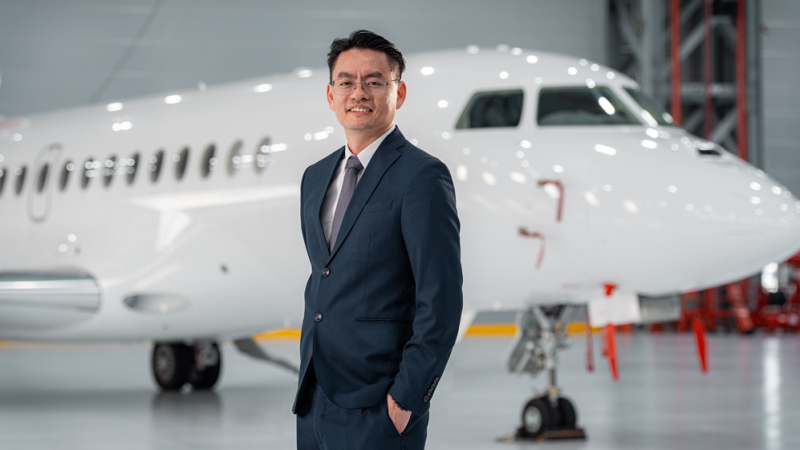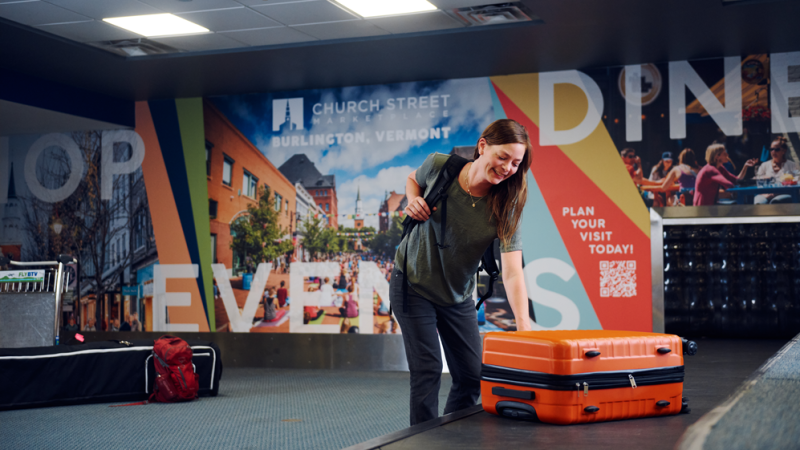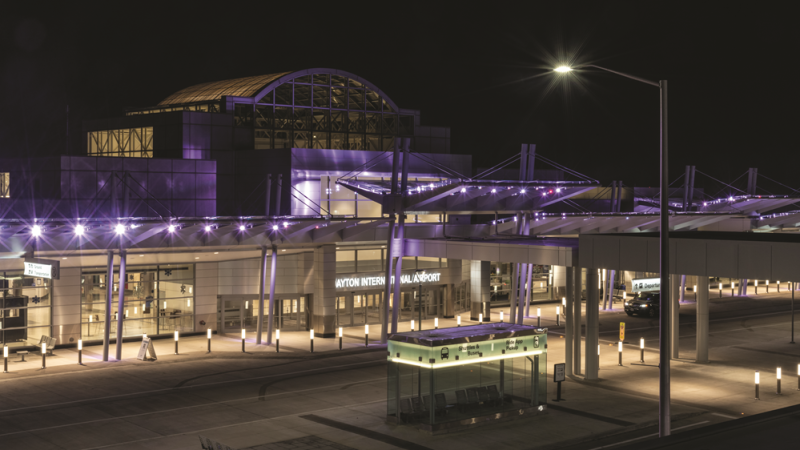As one of the leading players in the global airport business, Fraport AG, Germany’s biggest airport operator based at Frankfurt Airport, offers a wide range of operational and management solutions based on over 95 years of aviation expertise. Fraport’s portfolio of companies spans four continents with activities at 30 airports worldwide.
In its mission statement, the company places the focus on its customers and is committed to ensuring a “good trip” for all passengers and travellers. This applies to all Fraport’s business activities and services at Germany’s largest aviation hub in Frankfurt and at the Group’s airports worldwide.
In line with this focus, Fraport has fully embraced current trends and is leading the way in deploying the latest technologies to promote passenger comfort, to optimise its service and also to increase its competitiveness.
Claus Grunow, VP Corporate Strategy & Digitalisation, affirms that a lot has been done towards this end, and the period of the pandemic provided an opportunity to stop and look ahead, carefully shaping the vision for future development, and also carefully planning current and future investment.
“The market demands more individualised services. This is quite a challenge, as it is contrary to what airports all over the world have done until now and is coming at a time of numerous strategic challenges – political instability in various regions, high inflation, an acute labour shortage and an ever-increasing focus on sustainability. One that touches upon all of these is digitalisation.”
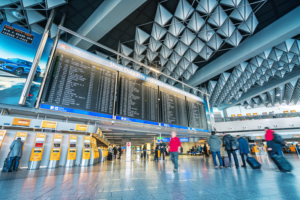 The Digital Factory
The Digital Factory
To this end, a few years ago Fraport set up an initiative that has proven to be very successful – the “Digital Factory”, a virtual organizational unit that works as an internal solution partner to support Fraport business units with a specific task or problem. The strategic objective is to further increase the level of digital maturity within the Fraport Group and to drive forward digital transformation.
One aim of the Digital Factory is to identify market innovations early on and facilitate the implementation of compelling digital solutions for Fraport, that should, amongst other benefits, promote service individualisation, as Grunow has mentioned. “A good example of the Digital Factory’s outcomes is FRA SmartWay, a tool that enables passengers to pre-book a free slot for security control, alleviating the hassle of wasting time and enabling better time management.”
At the moment, the shortest time the tool allows is one hour ahead of departure but the team is working on a product that would shorten the time to just 30 minutes. “FRA SmartWay is already available at Frankfurt Airport and we are in talks with other airports in the Group,” says Grunow. “This is a wonderful example of an individualized approach applied to a completely streamlined process, catering for passengers’ personal needs.”
“We are currently deploying a TurnaroundControl solution with Assaia at one of our Fraport airports in Ljubjana. The goal of the project is to optimise turnaround performance and gain valuable insights for future deployments at other Fraport airports.”
“Projects like this are not only about testing new technologies, but above all about collaborative value creation. Another example for that is the “Training and Personnel Planning Tool” from compleet for our de-icing company N*ICE Aircraft Services & Support GmbH. The developed solution fulfilled all expectations. In the future, it could also be used for the management of temporary employees in other Fraport subsidiaries.”
Faster and more efficient
Other successes include the “Automatic Licence-Plate Detection at CargoCity South” project, launched in spring 2021, which was one of the first Digital Factory projects, enabling automatic entry via two gates to Frankfurt Airport’s CargoCity South by means of an innovative camera system that checks visitor licence plates and compares them against stored data. The solution has since been implemented at other entry gates.
The Digital Factory project team has also developed a solution for automatically identifying cargo units being towed on the apron. Camera-based monitoring of the apron’s parking areas and AI-based analysis have resulted in far fewer empty, and inspection runs, reduced risk of delays and, in turn, substantial savings.
The last example will please any passenger – just recently, Frankfurt became the first European airport to offer full-coverage biometric touchpoints to all airline passengers, enabling streamlined, frictionless passage throughout the airport – another milestone in the expansion of Fraport’s digital passenger processes. Once registered, passengers pass through the facial recognition-equipped checkpoints without showing any physical documents.
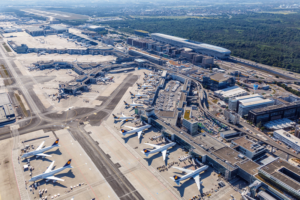 Accelerating innovative solutions
Accelerating innovative solutions
Grunow points out that one of the benefits of the Digital Factory is considerably shorter times and significantly reduced cost of solution design and implementation. “At Fraport, digitalisation is more than just technology, but primarily a process and mindset change. The Digital Factory was set up as a process framework to drive innovation and digital transformation across Fraport Group airports fast and effectively.”
“It has enabled us to build strong connections with the start-up ecosystem and harness the power of open innovation. This has aided Fraport in maintaining a high speed of solution implementation and sustainable transformation. Colleagues from other business units can get involved in the projects as temporary virtual team members in order to ensure the transfer of experience and methods within the organization and Group.”
“We often bring in new players from completely different industries to come up with solutions we can easily adopt. This speeds up the process, saves a lot of money and brings in perfect collaboration partners from different sectors. It’s a great example of how digitalisation does not only benefit the customers but also brings internal benefits for the organisation.”
Driving mindset change
He emphasizes that changing the mindset is a key challenge. “Many believe that the way things have been done for decades is good enough for the future and refuse to see the benefits, including the financial ones, that novel technologies can bring. But I personally believe that it’s the only way to succeed in the future.”
He reflects that fundamental changes within a year or two can hardly be expected. The development will more likely happen in small steps as incremental improvements are made, to address the most pressing issues, such as a lack of people that will lead to a higher degree of automation and robotisation.
“Aviation has been a very traditional business and for a good reason, given the paramount importance of safety. However, I believe that digitalization can do a lot for the industry. Just look at the baggage screening technology that several start-ups have come up recently, using artificial intelligence for automatic threat detection at X-ray and CT systems. There are big things to come as a result of digitalisation that would enhance not only passengers’ comfort, but also their safety.”
